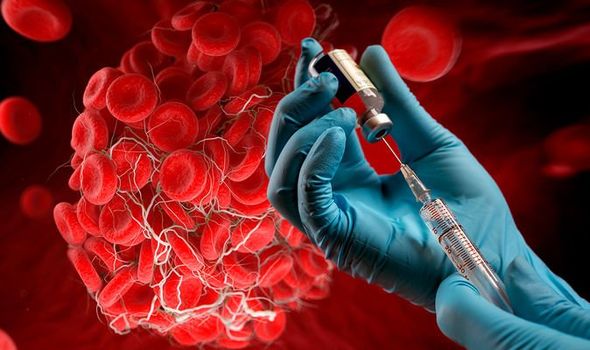Thrombosis with Thrombocytopenia Syndrome (TTS)

- 30 Apr 2024
Why is it in the News?
Global pharmaceutical giant AstraZeneca has said that its AZD1222 vaccine against Covid-19, which was made under license in India as Covishield, could cause low platelet counts and formation of blood clots in “very rare” cases.
What is Thrombosis with Thrombocytopenia Syndrome (TTS)?
- Thrombosis with Thrombocytopenia Syndrome (TTS) is characterised by thrombosis formation (blood clots) combined with thrombocytopenia (low platelet count) with symptoms typically presenting in the 4-42 days after vaccination.
- Platelets are small cells that help blood to clot, so having too few of them can be dangerous.
- It often involves unusual blood clot locations, such as in the brain (cerebral venous sinus thrombosis) or abdomen.
- The condition was observed in people who received adenoviral vector COVID-19 vaccines, such as Vaxzevria, Covishield (AstraZeneca), and the Johnson & Johnson/Janssen COVID-19 vaccine.
- TTS seems to occur because the body's immune system reacts to the vaccine by making antibodies that attack a protein involved in blood clotting.
- According to the Centers for Disease Control (CDC), TTS is classified into 2 tiers based on the location of thrombosis and severity of symptoms.
Tier 1:
- Rare blood clots, like in the brain or gut, sometimes alongside more typical ones in the legs or lungs.
- Low platelet count (below 150,000 per microliter).
- Positive anti-PF4 ELISA tests can help confirm diagnosis but aren't always needed.
- Tier 1 cases are usually more severe and riskier.
- This is more common in younger people.
Tier 2:
- Common blood clots, like in the legs or lungs.
- Low platelet count (below 150,000 per microliter).
- A positive anti-PF4 ELISA test is necessary for diagnosis.
Symptoms of TTS:
- Symptoms of TTS can include severe headaches, stomach pain, swelling in the legs, trouble breathing, and problems with thinking or seizures.
